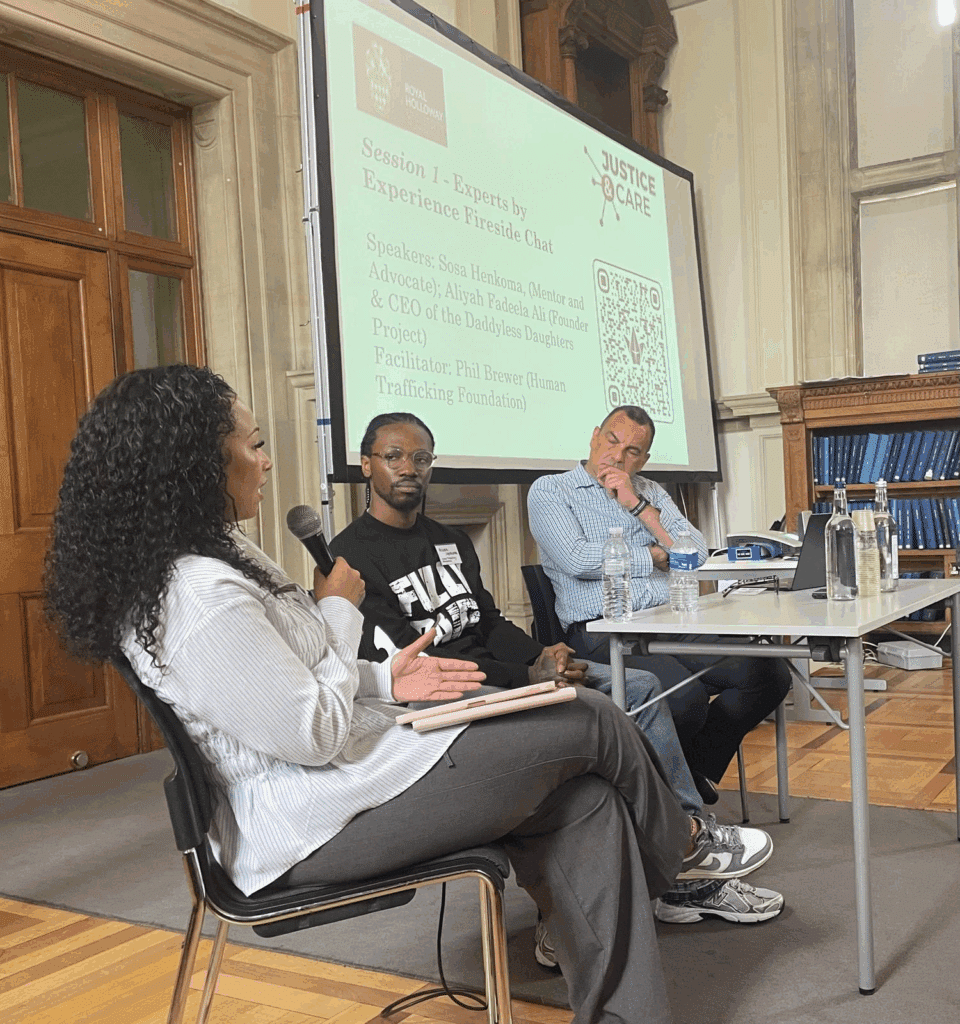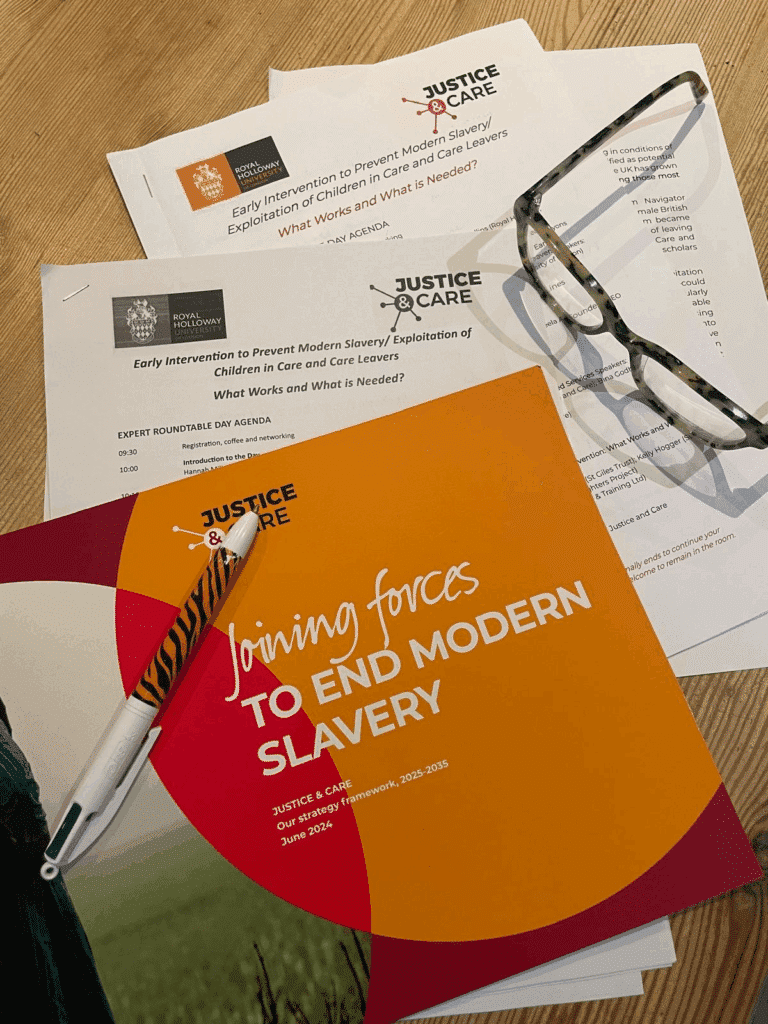We must fill the gaps for children in care before exploiters take advantage
June 18, 2025
Justice & Care co-hosted an expert roundtable day last week – ‘Early Intervention to Prevent Modern Slavery and Exploitation of Children in Care and Care Leavers: What Works and What is Needed?’ – in partnership with Royal Holloway, University of London.
In this blog, our Global Research Lead, Dr Hannah Miller, reflects on the learnings from the day – including the urgent need to work together to close systemic gaps, create safe spaces for children and ensure the voices of lived experience experts are valued.
It was a privilege to be joined by 40 leaders from across all the major sectors for our early intervention event. The day highlighted that in order to support children and young people at risk of modern slavery, we must first understand their current vulnerabilities.
Children in care and care leavers face systemic gaps that leave them especially exposed. We explored a needed shift in how professionals, services and communities engage — moving beyond crisis management (or, at worst, fear) to building trust before a crisis, recognising vulnerability before labels, and ensuring safe spaces where children feel comfortable to speak up before they’re spoken about. Where trust and support are bespoke and ongoing. As one professional reflected, we must ask, ‘what does the child need from me?’ — ahead of systems and processes.
The UK’s Independent Anti-Slavery Commissioner, Eleanor Lyons opening address set the tone, highlighting the record 19,125 referrals to the NRM in 2024 — 44% of which involved children, most aged 15–17 — emphasising the need to address domestic exploitation, particularly of UK-national children in care. She called for stronger local safeguarding, clearer legal definitions of child exploitation and long-term, trauma-informed support through the transition to adulthood.
A particularly powerful moment came from Sosa Henkoma (mentor and advocate), Aliyah Ali (Founder & CEO of the Daddyless Daughters Project) during the Experts by Experience Fireside Chat, facilitated by Phil Brewer (Human Trafficking Foundation). Their lived experiences brought a vital human lens, reminding us of the risks of re-traumatisation when such stories are mishandled. It’s not enough to invite people with lived experience into the room; their voices must be truly valued, and their past, present and future respected. This requires careful, ethical and compassionate practice at every stage.

It was emphasised that modern slavery and human trafficking rarely begins with a perpetrator. It begins in a void — a relational, emotional and systemic absence that makes children vulnerable. True prevention must address those voids before they are filled by exploiters.
A law enforcement representative from the National County Lines Coordination Centre offered valuable insight into the complexities of investigating these crimes, whilst others from organisations including St Giles Trust, Catch22 and Daddyless Daughters unpacked the complexities of effective early intervention and ongoing support. Together, we examined the urgent need for more specialist responses and stronger multi-agency collaboration across education, social care, policing and survivor-led organisations — before, during and after exploitation.
As Justice & Care, we shared evidence from the Victim Navigator Programme, which supports many survivors with care-experienced backgrounds, including those at risk of re-trafficking. We were delighted to share this platform with Barnardo’s, reflecting on their Independent Child Trafficking Guardian (ICTG) service. Together, we recognised the unique and complex vulnerabilities of care-experienced individuals, and our commitment to providing long-term, trauma-informed support.

I remain deeply grateful to Royal Holloway for their generous funding and support in hosting the event, and to my brilliant co-organisers for making the day possible. Looking ahead, we are thrilled to announce that we will not only publish a report with Royal Holloway, capturing the learning from this day, but that Justice & Care will also embark on Phase 2 of this research stream.
Led by Professor Patricia Hynes (Sheffield Hallam University), it will deepen understanding of early intervention strategies and develop practical solutions to prevent future exploitation of children in care and care leavers.
Ethical early prevention may be complex, but it’s a challenge we cannot afford to ignore. When we come together with purpose and compassion, we have the power to prevent harm before it begins—and change the lives of countless vulnerable young people for the better.
Head to our Policy and Reports archive to find out about other research projects Justice & Care has worked on; our recent pieces focus on child trafficking in Romania, forced labour in the UK and improving criminal justice outcomes ten years after the UK’s Modern Slavery Act.


